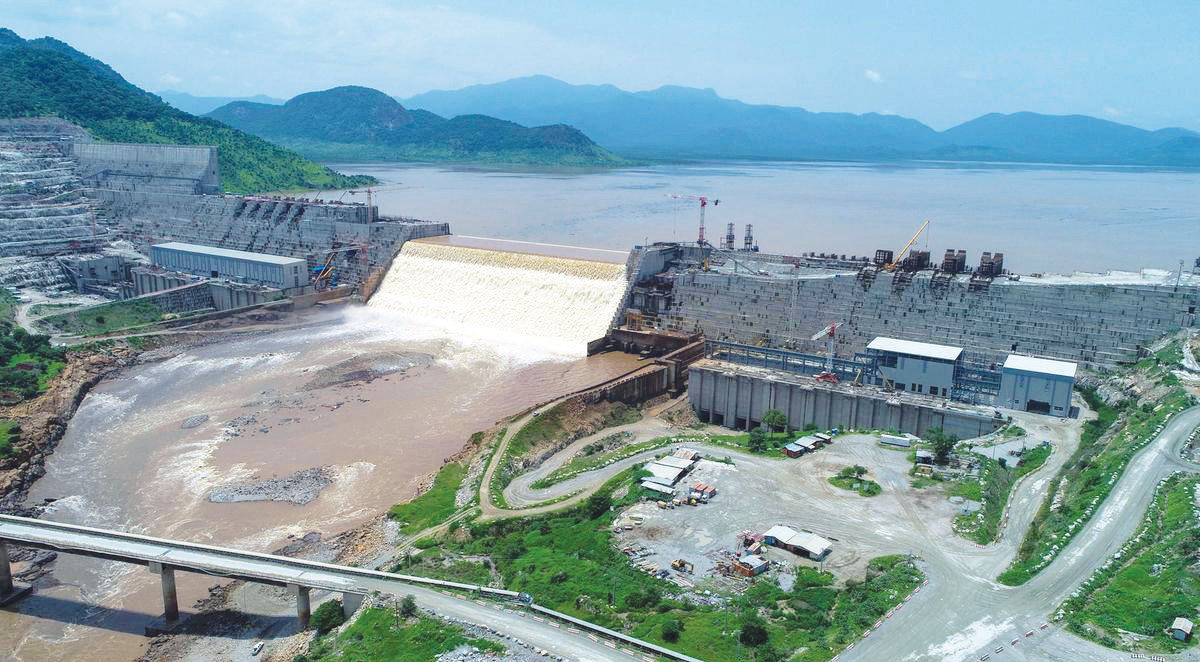
BY LAKACHEW ATINAFU
The word transformation might not be practical unless leaders put in place public allegiance and watch over grand projects at intrinsic motivation and commitment. Ethiopia the Land of Origin, independent for millennia and time unmemorable passed through temptation due to the fact that inefficient utilization of its resources.
Adopting Albanian model of federalism since the demise of the Derg regime, the country seemed on the verge of disintegration. For those who do not clearly understand the mysterious magnetism among the diverse nations, nationalities and peoples of Ethiopia, situations have been considered as failure of state no matter how the world applauded the reform led by clairvoyant leaders.
The EPRDF ruled Ethiopia since 1991. Along with its affiliated ethnic-based parties, the EPRDF in the meantime holds all 547 seats in the parliament. Uncompetitive elections and repressive laws on antiterrorism, civil society, and the media, have been used to entrench the EPRDF’s authoritarian rule, effectively eliminating opposition parties, independent news outlets and stifling all forms of dissent. Freedom House has rated Ethiopia as Not Free since 2011.
In April 2018, Abiy Ahmed – a 42-year-old former military officer from Ethiopia’s largest ethnic group, the Oromo – was designated by the EPRDF as prime minister following the resignation of his predecessor, Hailemariam Desalegn.
One of the swift measures Abiy has taken after assuming power is consolidating mega projects that were seen as tentative gestures and figments of imaginations. Most notably the new administration has given due emphasis for the realization of the Grand Ethiopian Renaissance Dam (GERD) against all odds of the period gone off.
Among resources that Ethiopia is blessed with is water no matter the country failed to take advantage of the blue economy due to colonial agreements though the country remained to be independent since the most known human history other circumstances. The nation which is the source of Trans Boundary Rivers has had drought and famine due to erratic rainfall and when the earth dries up.
Dr. Aregawi Berhe Director General of the Office of the National Council for the Coordination of Public Participation to the Construction of GERD upon a short stay with The Ethiopian Press Agency said that 10 years have gone since the inception of the Grand Ethiopian Renaissance Dam. The project was supposed to be completed within a short time span however malpractices, corruption and technical incompetency among leaders before the change appeared to be fundamental hazards for its progress.
The new administration considered GERD more than a hydro power plant; it is also a symbol of unity and manifestation of effective diplomacy and a project that matters Geo-politics dynamism.
Aregawi said taking aside all odds, leaders began to give due emphasis as to how to correct the project’s problem at the down of the reform. Hence its progress has reached about 70 percent however the 20 percent ahead performance might not be easy; it rather requires various tools and facilities needed for different assemblage and installation works.
As to the Director, the remarkable progress that has been registered ever since the reform has inspired Ethiopians in the home and the Diaspora to contribute what they can and ushered opportunities of inscribing finger prints upon the grand project even to those that have been reluctant to contribute and hesitant about the realization of the project.
The public have understood the role of the GERDS for unity, justice, transition, and sovereignty so that the public is backing the realization of the project at high moral that seemed to have emanated from the victory of Adwa, said Dr. Aregawi.
“The secret behind the Victory of Adwa is the unity of the people and mysterious magnetism among nation, today people from all walks of life are doing in harmony for another trophy and making history by realizing the grand project”
Before the reform, there had been networked corruption from the clearing of plants to the purchasing of raw materials and assembling of fake raw materials that demanded staggering foreign currency. Hence there was a need to undertake fake property disposal and engineering revision after the reform. In doing so, the Dam has shown glittering progress in two years though ten years have gone away since commencement.
Prime Minister Abiy Ahmed quickly embarked on a tour of the country, conducting town-hall meetings and listening to constituents whose voices are rarely heard.
He wasted little time in accelerating the reform agenda, releasing several high-profile political prisoners and lifting a state of emergency. He also announced plans to amend the constitution to institute term limits for prime ministers, encouraged exiled opposition politicians to return home and participate in politics, and proposed ending government monopolies in key economic sectors, including telecommunications, energy, and air transport.
Crucially, Abiy moved to end 20 years of hostility with neighboring Eritrea, meeting recurrently with that country’s leader, Isaias Afwerki. He went further by meeting with leaders of over 50 opposition parties and declaring that a strong multiparty system abide by the rule of law and human rights was essential for Ethiopia.
On a trip through the United States, with stops in Washington, Minneapolis, and Los Angeles, he engaged with exiled opposition leaders and other members of the Diaspora in an effort to show a commitment to reconciliation.
For Ethiopians in the country and abroad who are accustomed to an authoritarian EPRDF that prioritizes economic growth and stability over political and civil rights, the pace and breadth of these changes are exhilarating.
The Ethiopian Herald 4 April 2021





